#film adaptations
Text
when are studios gonna realize that animated adaptions of books are the WAY TO GO
#animation is not just for children in this essay I will#look at arcane or castlevania#also like I've seen the fan casts henry cavil cannot play every generic hot male lead#also animation just leads itself better#I want my own book to be animated#booklr#writing memes#book memes#goodreads#film adaptations#animation#six of crows#the cruel prince#folk of the air#divine rivals#letters of enchantment#lenora's pen
54 notes
·
View notes
Text
currently thinking about how ages ago my friend sent me a long-ass explanation about why saltburn is an adaptation of the myth involving theseus, the minotaur, and the labyrinth.
nobody asked but here’s some of the fun proof that exists of this:
first and foremost, icarus, the boy who flew too close to the sun. during the party scene, it is evident that felix symbolises this poor ill-fated youth, and the symbolism here is potent. he flew too close to finding out what oliver truly is. he discovered something he shouldn’t have, and dressing him up in icarus cosplay is the perfect showcase for his fate and his mistakes. it’s also brilliant in terms of what icarus actually did to “deserve” death. realistically, he was told not to go too high or too low, but in actuality, such cryptic instructions were difficult to follow mid-flight, and it resulted in catastrophe. felix is trying to navigate the responsibilities of being a good friend with his baggage as someone in a family of rich pricks. it’s hard, and in flying too far away from his background, he “flew too close to the sun” and discovered things he shouldn’t have. as a small nod to further the icarus imagery, felix’s body is discovered under bright and direct sunlight as he lays motionless in his winged costume.
secondly, saltburn is in the center of a labyrinth. the labyrinth lore runs deep in this movie, because not only does the labyrinth function as symbolism, it has lore that runs adjacent to the lore of the actual labyrinth. in theseus and the minotaur, the labyrinth is a construct of greek architect and inventor daedalus, who was conscripted by king minos to create the maze. in saltburn, the labyrinth is constructed upon special request from james catton, the owner of the estate, and a very wealthy man (almost like a modern day king).
the labyrinth (in the original myth) is dangerous to all characters that reside within it. it keeps all in within a chance for escape, and those that get close die tragically. in saltburn, the labyrinth functions as an ode to the ways in which riches and fame poison those that reside in the walls, keeping them locked within its dangerous talons, or in this case, cleanly trimmed hedges. it’s suburbia on a larger and more internal scale. even those that do not have riches themselves, namely farleigh and annabel, do everything they can to remain on the estate and in the good graces of those on the property with immense money. it affects how they act and how they are expected to act. farleigh, as a good example, is very stuck on the particulars of rich people’s behaviour. as mentioned above, those that try to leave the maze die tragically, and icarus is a prime example. felix, in his attempt to be better than the riches of the estate socially allow, flies too close to a possible escape from the confines of the labyrinth and is murdered as a result.
in the story of the labyrinth, it is unsolvable, unless you are clever and quick witted (manipulative), which theseus luckily is. the same is true for oliver. oliver, like theseus, gets into the heads of multiple characters, manipulating his way to the top of the food chain. the scene where oliver views the wooden counterprt of the maze through the head office in the estate, he is told that he shouldn’t be there, and a sense of ominous foreboding takes place. we feel that he has seen something that will change him. however, i believe this is simply symbolism for the fact that oliver has figured out the secret to the maze: a secret that he, an outsider and a poorer, less sociable man should not be aware of, as he is a representation of theseus, a character who has no right being king.
thirdly, oliver is juxtaposed with imagery if the minotaur during the party scene, and though this costume doubles as a reference to the changeling in a midsummer night’s dream, it is still highly important. in the original myth, people are sacrificed to the minotaur on a yearly basis. at first, felix fits the profile for the minotaur: a rich, wealthy man in a labyrinth who is regularly described as going through friends the way a young boy would go through toys. it is also true that the minotaur has often been seen as a controversial figure, one that begs the question “is a monster just a tormented creature fated to behave according to the will of the gods?”. felix’s behaviour, or namely, his attempted deviancy from the behaviour he is expected to show, is a major prt of his character arch. we expect oliver to be the victim of felix’s behaviour exactly because of this. but he isn’t. an easy explanation is that oliver is the minotaur, going through the family members as though they were victims in a maze. however, oliver is NOT the minotaur, as the myth is a lot more complex than the minotaur being the bad guy. despite what we expect, director emily fennel is leaning into the concept that the minotaur’s storyline is that of fate versus free will. the minotaur is cursed by the gods to fall into certain patterns and to be punished for its behaviour, despite it doing exactly what was expected. felix attempts to deviate from what is expected, but ultimately he fits in well with the rich and social, and his death is a punishment at the hands of a sort-of theseus who believes he is more deserving. rather, oliver is also seen to be theseus, who famously invaded the maze, manipulated its dwellers in order to navigate it, killed the minotaur, and then manipulated his way into becoming king as a result. sound familiar? it is because of this that the imagery of oliver as the changeling is particularly important. the horns can be evocative of the minotaur, offering us a red herring, where he is truly disguised as the opposite. it’s a fake out.
fourthly, king minos (owner of the labyrinth) did not die directly at the hands of theseus, he did eventually meet his downfall and was boiled to death in a bath. james catton, head of the estate, dies of a supposed suicide, also not directly by oliver’s hands, but still implicitly connected to the events of the story, much like king minos’ death.
the lore in this film is incredible, and though emily fennel has not said that the film is an adaptation of greek myth, the parallels are deliciously undeniable. saltburn is fascinating, and truly one of the best films of 2023. there is so much stuff jam packed into it, and it’s one of those films that takes a few watches to fully grasp its depth. i love it!
#saltburn#felix catton#oliver quick#james catton#farleigh start#venetia catton#elspeth catton#annabel#theseus#minotaur#theseus and the minotaur#the labyrinth#king minos#princess ariadne#king theseus#capitalism#the saltburn estate#the bathtub scene#icarus#icarus falls#felix saltburn#beautiful symbolism#symbols#symbolism#so much symbolism#greek myth#movie adaptation#film adaptations#saltburn movie#saltburn analysis
42 notes
·
View notes
Text
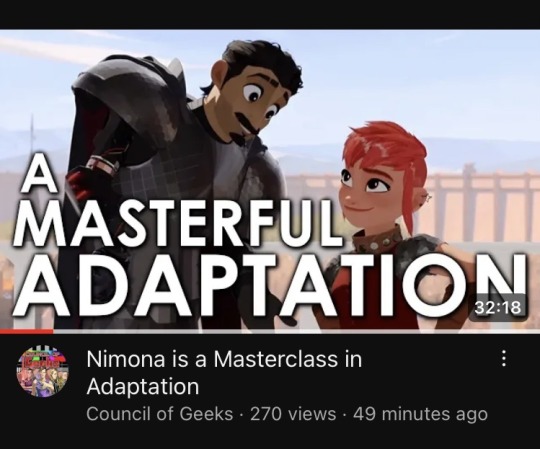
Here’s my personal recommendation of a YouTube video to check out:
youtube
#nimoma#nimona#nimona movie#nimona my beloved#nimona novel#nimona netflix#nimona analysis#nimona posting#nimona is great#nimona the movie#nimona spoilers#nimona graphic novel#nimona comic#movie adaptation#netflix adaptation#film adaptations#movies#movie#movie discussion#movie stuff#movie analysis#masterclass#trans artwork#queer artwork#council of geeks#tumblr recommendations#recommend#recommendation#youtube#youtube content
91 notes
·
View notes
Text
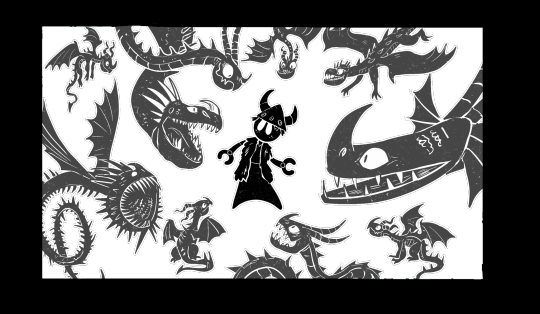
Some adaptations are wonderful, and others… not so much. Is there a story that you think deserves a second chance in a different medium? Reblog and tell us about it!!
#tale foundry#writing community#writers of tumblr#movie adaptation#film adaptations#httyd#httyd fanart#how to train your dragon#book adaptation#novelization
24 notes
·
View notes
Text
I don’t need a Dresden Files tv show remake becuase I want to see book accurate scenes and characters come to life. No no no. I need it so the angsty little 12 year olds can make the most soul crushing edits of the characters to songs like “Your own your own kid” “not strong enough” “SCOTT STREET” “WHAT WAS I MADE FOR”, that cause me to go into a depressive spiral for 6 days.

#give me the goods!#the Percy Jackson edits alone make me want to jump off a very tall something these would destroy me#anyways back I go into my hole#the dresden files#harry dresden#dresden files#tv#books#film adaptations#jim butcher
49 notes
·
View notes
Text


“we accept the love we think we deserve.” — the perks of being a wallflower
#books#studyblr#dark academia#light academia#academia aesthetic#pretty sunset#the perks of being a wallflower#movie#book quotes#stephen chbosky#bookaholic#book lover#study aesthetic#film adaptations#book aesthetic#film aesthetic#books and literature#classic academia
36 notes
·
View notes
Text
I just finished rereading Atonement for the first time in 13 years. I've been calling it my favourite book and my favourite movie this whole time, and since I've been reading a lot more lately, I wanted to revisit and see if it's still the case. But it was kind of impossible to read without picturing the film the entire time.
Because for all the film adaptations of books that fail to capture or translate their story properly, Atonement is right there. Not only a perfectly faithful adaptation of the themes and events in the book, but actually one that elevates them.
An aesthetically sublime film in its own right... The score. The costumes. The scenery. The frenetic editing. The emotions. You can feel the heat of the summer day. Feel the chaos at Dunkirk. It's genuinely an artistic achievement. And it's one that stuck so incredibly close to its source material.
Yet there's one small change in particular that stands out to me because it's better than the book. And it's so small, but it is EVERYTHING.
When Briony comes to tell her sister that she's changing her testimony after all these years and Robbie yells at her for telling the lies that condemned him, in the book he says "and when I was inside (prison) did it give you pleasure?"
In the film, James McAvoy delivers this line with the words switched ever so slightly "Tell me, did it give you pleasure to think of me inside?" and he lingers over the word pleasure in a way that eroticizes the whole concept, in a way that reminds Briony and the audience that all this happened because Briony had a little scorned crush on him at 13. And puts the emphasis back on her imagination, imagining him inside, since this whole story is about her imagination. It's just.. that one line hits so much harder, both in the way it was written and in the way James McAvoy delivers it.
It's crazy. So many book to screen adaptations that fail and fall short and do a disservice to their source material... and then there's Atonement.
#atonement#ian mcewan#film adaptations#joe wright#christopher hampton#james mcavoy#briony tallis#robbie turner#acting
26 notes
·
View notes
Text
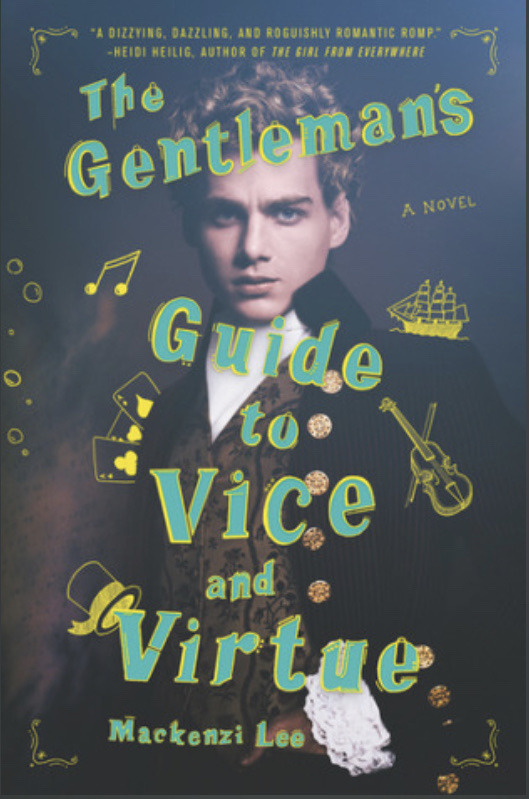
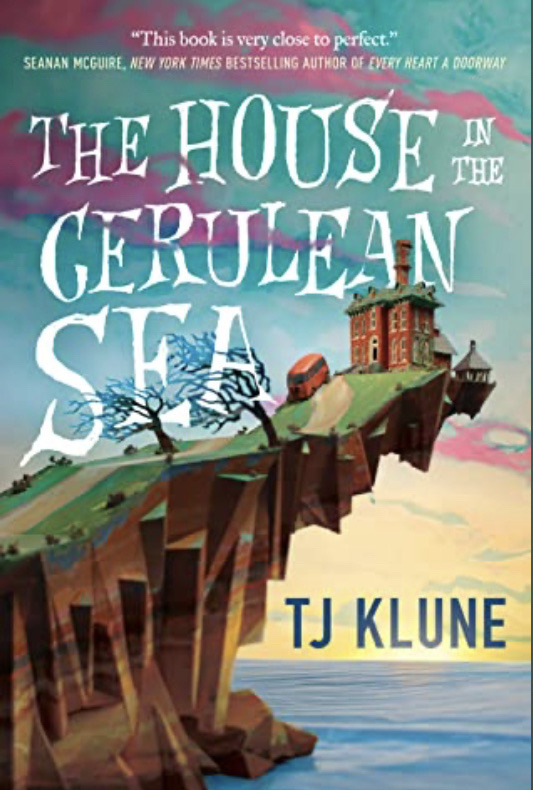
Since we will soon be getting film adaptations of Red, White and Royal Blue and Aristotle and Dante Discover the Secrets of the Universe, I hope there will eventually be adaptations made for these excellent queer YA novels as well!! 🤞🏳️🌈
For The House in the Cerulean Sea in particular, I need the adaptation to be animated! Now that we have films like Nimona on Netflix, I am hopeful that a similar animated adaptation can be made for TJ Klune’s novel. *speaking this into existence*
#the gentleman’s guide to vice and virtue#mackenzie lee#the house in the cerulean sea#tj klune#lgbtqia#queer#book covers#lgbtq books#please let us have adaptations of these queer books too!#I also would love an adaptation of Klune’s Under the Whispering Door#film adaptations#red white and royal blue#casey mcquiston#aristotle and dante discover the universe#benjamin alire sáenz
116 notes
·
View notes
Text
I swear there's nothing that 30 year old straight men like more than hating on things other people like. They'll read your favorite series, and say 'It put me to sleep.' They'll pretend to be a fan of The Lord Of The Rings, but only until they discover you're one too, and then they start to hammer down on your opinions of the series. They say they love Percy Jackson, and then their only way to show that love is to hate on you for liking the show. They say they like Avatar: The Last Airbender, but when the show comes out, they're gonna dislike it for all the wrong reasons, and then claim that it's because it doesn't have the same feel to it as the orginal.
My dude, it's a live-action, if it has the same feel as the original, it will look like shit. Dudes don't understand that screenwriting works differently in different formats, and that you won't be able to do an exact blow-by-blow adaptation of anything. It doesn't fucking work.
24 notes
·
View notes
Text
Books I Want Adapted By Mike Flanagan
*Note: I haven’t seen all of his work and I’m more of a mystery/crime fiction reader than horror*
Something Wicked This Way Comes:

I think this is probably the most expected considering it is THE Halloween story that people suggest. It is about two friends' experiences with a dark traveling carnival that preys on people’s desires right before Halloween. Ray Bradbury has written plenty of horror short stories as well that would supplement this as Flanagan sometimes incorporates those into his adaptations.
Death of the Living Dead:
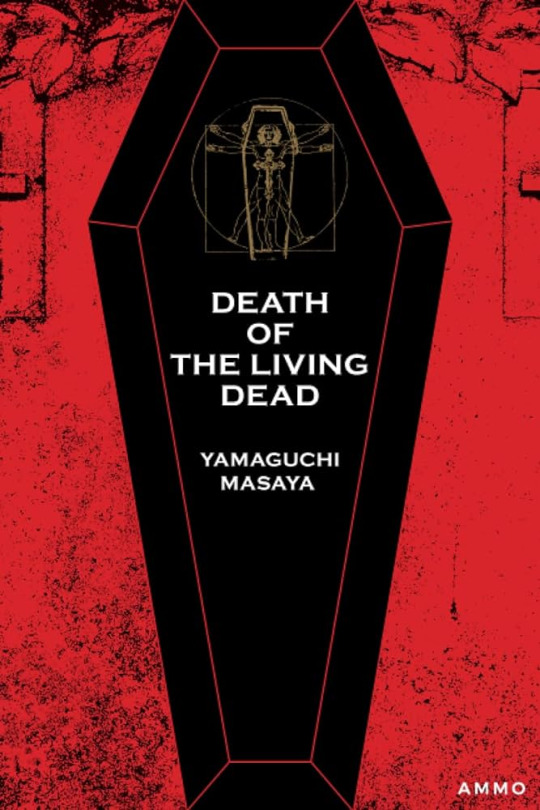
Translated from Japanese, beware the English print is very tiny. This is a story of a funeral director family living in New England in the 80s. The Barleycorns are a troubled family but what could be more troubling for funeral directors than an epidemic of the dead coming back to life? Murder, but why murder when the dead come back to life? It is a murder mystery that plays with the classical conventions of a mystery novel.
The Woman in White:
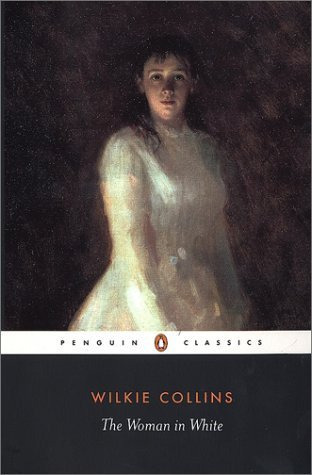
A ‘sensation novel’ written 1859. After a mysterious encounter with a woman in white Hartright, an art teacher, and his students find themselves absorbed in a tale of intrigue, suspense, crime, and more. The story is told from multiple perspectives which was inspired by how a crime is described by multiple witnesses in court. I think a lot of Collins’ novels could be adapted or they could be used for inspiration like I said with Bradbury.
Another:
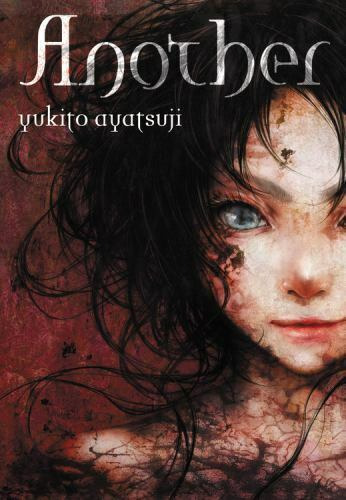
Another (ha) book translated from Japanese. It has an anime and film adaptation as well but I haven’t watched either. Koichi transfers to a new middle school but after realizing everyone is on edge and ignoring a girl who looks like a doll he figures out he is in a cursed class and a chain of horrific deaths follow. He tries to get to the bottom of it all and stop the gruesome deaths. There are three novels in this series but I only have the first one, I want the other two.
Wylding Hall:
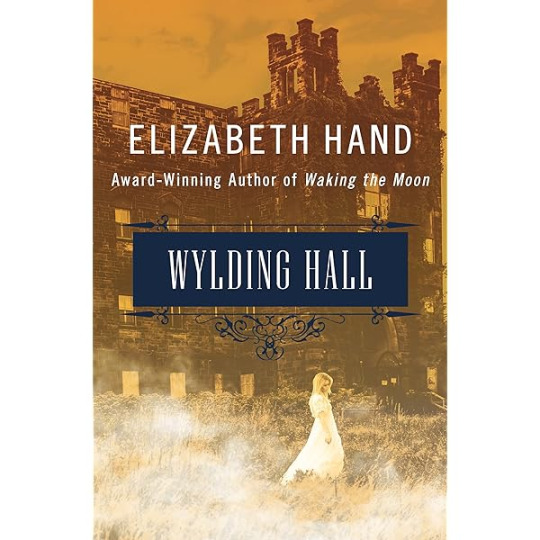
Members of an “acid-folk band” meet up at an old mansion in the country to record their music. They make their album but their lead singer goes missing in the building and is never seen again. Years later, the band reconnects with a young documentarian to tell their stories of what happened that summer.
And Then There Were None:

It doesn’t necessarily have to be And Then There Were None by Agatha Christie but any of the numerous mystery novels inspired by it. An island or secluded area where a group of people are staying with no contact to the outside ( A closed circle/community mystery ) and the people are dying off one by one as they try to figure out who the culprit is.
*I kept the descriptions short intentionally for convenience, so if you want to know more look them up, comment, or message me. I’m not going to promise to answer but I will try. If there are a lot of questions about one title I’ll probably just do a big singular review post of that title.*
#mike flanagan#intrepid pictures#the fall of the house of usher#edgar allan poe#the haunting of hill house#the haunting of bly manor#the midnight club#film adaptations#book adaptation#book recommendations#bookish#booklr#books#bookworm#books and reading#bookblr#literature#reading#bibliophile
40 notes
·
View notes
Text

This week, we’re talking about FILM ADAPTATION AND ROMANCE NOVELS with Yulin Kuang, filmmaker and romance novelist.
We discuss her work as both a screenwriter and director (she’s writing and directing the adaptation of Emily Henry’s Beach Read), and her debut romance novel, How to End a Love Story, set inside the writers room on a television show between the author of the books the show is adapting (the heroine) and one of the writers in the room (the hero). We talk about why romance adaptations are so difficult to find, why they don’t often hit quite like we expect, and we pitch a few books we’d like to see Hollywood take a crack at.
11 notes
·
View notes
Text
I always find it hilarious how often casting directors of Wuthering Heights film adaptations portray Ellen “Nelly” Dean as this elderly housekeeper next to Catherine Earnshaw, Hindley Earnshaw, Heathcliff, Edgar Linton, and Isabella Linton because that’s not who she is in the book at all.
In actuality, she’s about the same age as Hindley Earnshaw, who was only around 27-28 years old when he died, due to alcoholism. She’s only roughly six years older than Heathcliff and eight years older than Catherine Earnshaw/Linton Sr. She was only 14 years old when Mr. Earnshaw brought Heathcliff to Wuthering Heights, and they met. She was only in between her early-mid 20s when Cathy Sr accepted Edgar Linton’s proposal, and Heathcliff ran away after overhearing about how “it would degrade [Catherine] to marry him.” She was only in her late-twenties when Cathy Sr and Hindley Earnshaw died.
By the time we get into the second generation coming of age, Nelly’s story to Mr. Lockwood about these fucked up people she’s known and worked for from these two families since she was a child, Edgar Linton’s death, Isabella Linton’s death, Heathcliff’s death, and Cathy Linton Jr’s and Hareton Earnshaw’s engagement/upcoming marriage, Nelly is between her early-mid 40s.
At the end of the novel, Nelly has still just barely approached the beginning of “middle age” by the time Heathcliff and all this family drama surrounding the Earnshaws and Lintons. It’s why it just cracks me up how she’s always portrayed as this much more cynical and mature elderly lady in nearly every film. I guess, her being everyone else’s caretaker/servant everyone else’s favorite confidant, and her practical makes her attitude and personality comes across as someone you’d expect to be much older than her actual years
Granted, they also have often cast actors and actresses who are between their late-twenties to mid-thirties to portray Heathcliff and Cathy Sr as teenagers to early twenties. Of course, it’s also not uncommon for many people between their late-twenties to thirties, and sometimes even early 40s, to still get physically mistaken for being between their late-teens to mid-twenties since those are still fairly young years in adulthood, too. Juliet Binoche looked to be her actual age of 28 years old when she played the much younger 14-18 year old Cathy Sr and Cathy Jr Earnshaw/Linton, though.
Ralph Fiennes is actually my favorite actor’s portrayal of Heathcliff. I think he captured the anger, the charisma, the instability, the moodiness, the mystery, the obsessiveness, and the vague underlying sense of sympathy in Heathcliff the best. Physically, Ralph Fiennes is a white Caucasian actor, but to the the costume/make up department’s credit, they did have him wear a black wig and tan his skin enough to make him come across as mixed Romani in descent for this movie. Yeah, Nelly says his skin is “blacker than the devil,” but we also know that England was a very racist country towards outsiders who were not of pure white Anglo Saxon British descent back then, so Heathcliff could have been a lighter shade of tan than she said or he could have been dark brown. We don’t get a clear answer.
I also do love this scene of him talking to Nelly about being tired of getting revenge at the end of the 1992 Wuthering Heights film adaptation. They both appear to be around the right ages from the book here, and I love Nelly’s exasperated “Oh, for God’s sake…Can you please, stop staring like that!” She is so over and done with Heathcliff’s crazy bullshit, and the actress portraying Nelly here portrays that so well!
youtube
#wuthering heights#film adaptations#emily bronte#they always portray Nelly as an elderly woman in film adaptations of Wuthering heights#whereas in the novel she’s only just approached middle age by the time she meets Lockwood and heathcliff dies#heathcliff#nelly dean#janet mcteer#ralph fiennes#1992 Wuthering heights#Juliet binoche#hindley earnshaw#Youtube#in the novel Nelly’s the same age as Hindley Earnshaw and roughly three years older than Heathcliff
39 notes
·
View notes
Text
I decided to supplement my reading of Dracula by watching a couple of adaptations, so I started with Bram Stoker's Dracula (1992) and I just. Have a lot of questions.
25 notes
·
View notes
Text
Dearest People In Charge of Adapting Books into Movies/TV Shows,
Here is a very easy step by step list of Things To Do.
READ THE BOOK
Have the author on the project, at the very least during the rough outline phase
Outline the book's plot.
Remove scenes that may cause the story to drag on too long
Find all the scenes in the book you decided to keep
LITERALLY COPY PASTE THE PROSE AND CHANGE IT INTO SCREENPLAY FORMAT
Add in extra scenes but DO NOT under ANY CIRCUMSTANCES try to alter the main plot in any way
If the book is outdated, either make sure to specify the year or update the tech/pop culture references
Remove any culturally insensitive things the author may have put in, intentionally or unintentionally
Remember, DO NOT AGE UP OR DUMB DOWN THE CONTENT
If the books use magic, don't skimp on the practical effects or cgi depending on the situation
Bring in fans of the show to do a test screening/script doctor so you know what you're getting into
Don't be stupid
#adaptations#writing#film adaptations#I swear sometimes these people don't have brains#I can think of exactly two (2) visual media adaptations that I like more than the books#Those being#wicked the musical#and#just add magic#seriously guys#just be good at your jobs
14 notes
·
View notes
Text
youtube
NEW VIDEO!
Is it better to be a stickler for every little detail, or is faithfulness to the original a bit overrated?
#tale foundry#writing community#writing inspiration#writers of tumblr#writers on tumblr#movie adaptation#film adaptations#book adaptation#adaptations#tv adaptation#screenplay#screenwriting#atla#avatar the last airbender#netflix atla#httyd#httyd books#charlie and the chocolate factory#wonka#willy wonka#willy wonka and the chocolate factory#book to screen#book to movie#stage to screen#Youtube
8 notes
·
View notes
Text
Random thought…. Does writing a script for an adaptation that will ever be made count as fanfic?
6 notes
·
View notes